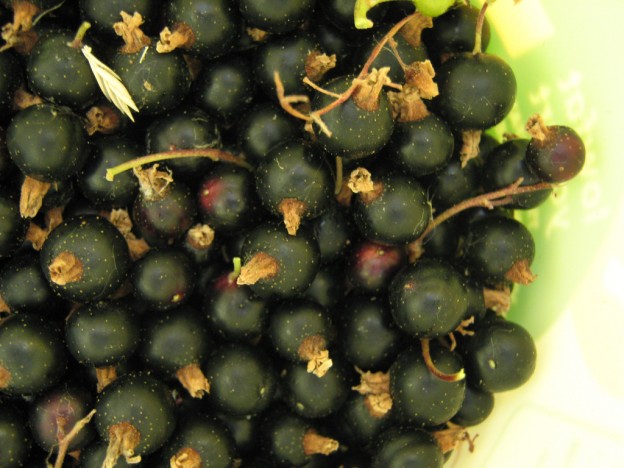
Black currants, high in Vitamin C (photo: GlennFleishman/Flickr)
On this day in…
1932
C.G. King and W.A. Waugh isolate vitamin C.
1939
Merck, Sharp & Dohme announce the synthesis of vitamin B6.
1887
William Rose, biochemist, who established the importance of amino acids, is born.
The Backstory
Disclaimer: the WHOLE backstory would take pages, so here are a few nuggets to take away:
Vitamin C functions as an antioxidant, helps prevent and treat scurvy, and is thought to lower the chance of stroke and gout. It is also a natural antihistamine. During infections, your immune system snaps up Vitamin C quickly — handy, then, that your immune cells regularly store a high concentration of this vitamin. Yet, there is apparently no direct evidence that Vitamin C is an antidote to the common cold. Sorry, guys.
Vitamin B6 is critical for metabolizing amino acids (see next paragraph) and is found in meats, whole grains, vegetables, nuts and bananas. It’s not normally a vitamin you’d be deficient in in isolation; instead, you’d be lacking adequate amounts of other vitamins of the B complex. B6 is thought to help reduce the effects of hangovers and nausea/vomiting during the early months of pregnancy (whoot!) and may, may increase both the vividness of dreams and your capacity to remember them (double whoot?). B6 supplementation can help reduce the outbreak of pimples associated with PMS and the effects of depression. All good.
Why cite the birth date of Mr. William Rose? His work with amino acids last century is critical to all modern nutritional research. In the early 1930s, Rose predicted the discovery of an element in proteins essential to diet. Shortly thereafter he succeeded in isolating one amino acid, threonine, establishing that it was essential for growth in rats. Later applying his observations to humans, Rose identified which eight amino acids are essential to our growth. He went on to advise various government agencies, formally recommending dietary guidelines.
An authority on protein nutrition, Rose taught for over 30 years at the University of Illinois. He was a 1966 National Medal of Science winner and died at the age of 98. Humbling.

Pingback: Radioactive Energy Drink Relaunches in "Glowing" 16 oz. Cans from Rexam | Vitamin Supplements Takes Good Care Of You